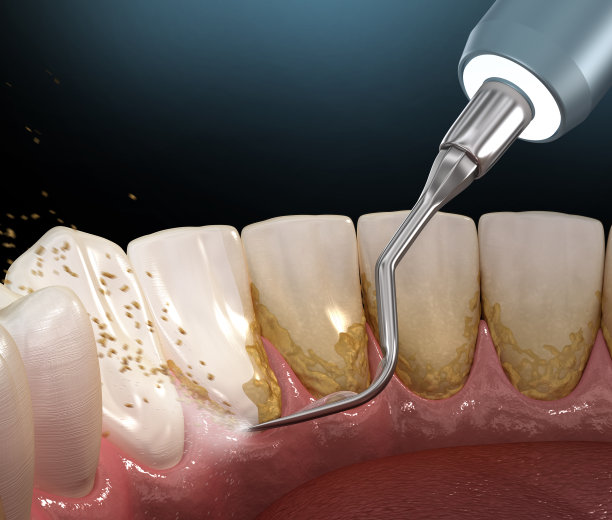Summary: Dental implants have revolutionized the field of dentistry, providing a long-lasting solution for individuals with missing teeth. This comprehensive guide explores the numerous benefits of dental implant treatment, the intricate procedures involved, and crucial aftercare tips to ensure a healthy and radiant smile. By diving into these key aspects, readers will gain a solid understanding of why dental implants are often regarded as the gold standard in tooth replacement. Whether you’re considering them for cosmetic reasons or functionality, this guide aims to equip you with all the necessary information while emphasizing the importance of professional care throughout the process.
1. The Benefits of Dental Implants

One of the most significant advantages of dental implants is their ability to restore functionality to the mouth. Unlike traditional dentures, which may slip and slide, dental implants provide a stable and secure base for artificial teeth. This stability allows for comfortable chewing and natural speaking, significantly improving the quality of life for individuals with missing teeth.
In addition to functional benefits, dental implants offer aesthetic improvements. They can be custom-designed to match the color and contour of your natural teeth, leading to a seamless appearance. This boost in confidence can enhance social interactions and even encourage individuals to socialize more without the self-consciousness often associated with missing teeth.
Furthermore, dental implants help preserve jawbone health. When teeth are lost, the jawbone may start to deteriorate over time due to lack of stimulation. Dental implants act as artificial tooth roots, providing the necessary stimulation to prevent bone loss, thus maintaining facial structure and preventing the appearance of premature aging.
2. The Procedures Involved in Dental Implant Treatment
The dental implant process begins with a thorough consultation. During this initial visit, a dental professional will evaluate the patients oral health, including the condition of existing teeth and gum tissues. X-rays or 3D imaging may be utilized to assess the jawbone’s structure and determine the best placement for the implants.
Following the assessment, the first surgical procedure involves placing the titanium post into the jawbone. This post serves as the foundation for the replacement tooth. After the post is securely in place, a healing period is necessary—often lasting several months—during which the bone integrates with the implant, a process known as osseointegration.
Once healing is complete, the final restoration phase begins. In this step, an abutment is attached to the implant, followed by the custom-made crown that will complete the process. This multi-step approach ensures that the implant is secure and that the final product looks and functions naturally.
3. Essential Aftercare for Dental Implants
Proper aftercare is crucial to the long-term success of dental implants. After the placement procedure, patients are typically advised on suitable pain management strategies and post-operative care to minimize discomfort and promote healing. Adequate rest and following the dentists instructions are vital in this initial phase.
Oral hygiene remains paramount even after the dental implant has been placed. Regular brushing, flossing, and rinsing with an antibacterial mouthwash are essential to prevent infection and maintain overall oral health. Dental professionals may provide personalized tips and recommendations that cater to each individual’s needs.
Regular follow-up appointments are also important. These visits allow dentists to monitor the condition of the implants, perform cleanings, and address any potential issues early. By maintaining a proactive approach to aftercare, patients can ensure their dental implants remain in excellent condition for years to come.
4. Factors to Consider Before Getting Implants
Before settling on dental implants as a solution, several factors should be weighed. A patients overall health is critical; individuals with chronic conditions such as diabetes or heart disease may face complications during the healing process. Consulting with a healthcare provider can help determine if they are suitable candidates for the procedure.
The condition of the jawbone is another critical factor. Insufficient bone density can require additional procedures, such as bone grafting, which may prolong the implant process. Assessing the jawbones health early can save time and ensure the success of the implant.
Lastly, the selection of a qualified dental professional is paramount. Working with an experienced dentist who specializes in implantology increases the likelihood of a successful outcome. Researching credentials and patient reviews can aid in making an informed decision about your dental care.
Summary:
In conclusion, dental implants provide a variety of benefits, from restoring functionality and aesthetics to preserving jawbone health. Understanding the procedures involved prepares patients for what to expect, while diligent aftercare ensures their longevity. Additionally, careful consideration of health factors and professional expertise plays a critical role in ensuring successful treatment. Invest in your smile and consider the transformative effects that dental implants can offer.
This article is compiled by Vickong Dental and the content is for reference only.
Vickong Dental
Vickong Dental is a large medical group established in Hong Kong in 2008 by professors from well-known medical universities in Guangdong and Hong Kong, as well as medical doctors from key national '985' universities (including Master's supervisors and senior professors). The chain of branches brings together expert dentists with PhDs and Master's degrees from Hong Kong and Mainland China, committed to providing high-quality dental treatment.
"Vickong Dental Practices the University Motto of 'Healing and Serving Society,' with a Stable Operation for Sixteen Years. It Has Been honored with Hong Kong Enterprise Leaders's Choice,' and is a Global Trusted Implant Center for the Nobel Implant System. Recommended by Hong Kong Metro Broadcast and Guangdong Television, it Serves Customers from Over Thirty Countries and Regions, Gaining the Trust and Favor of Citizens from the Guangdong-Hong Kong-Macau Greater Bay Area and Surrounding Cities.

Thousands of customers' unanimous praise
The most recognized and highly recommended dental service by customers in the Guangdong-Hong Kong-Macau Greater Bay Area
We Ensure You Receive Detailed Care and Attention Here
Hong Kong standards, Shenzhen prices, Your Trusted English-speaking dentists

Vickong Dental Medical-Grade Instrument Disinfection Process
Vickong Dental Medical-Grade Instrument Disinfection Process

Vickong Dental Chain: A Warm and Comfortable Environment for Treatment






Appointment Hours

Q&A
Why choose Vickong Dental?
Vickong Dental practices the university motto 「Medicine to Benefit Society」, with each branch bringing together highly qualified dentists with doctoral and master’s degrees from Hong Kong and the Mainland, and has maintained seventeen years of steady operation。Recipient of 「2024 Hong Kong Enterprise Leaders Brand」, 「2025 Hong Kong Enterprise Leaders Brand」, a Nobel Biocare Global Trusted Implant Center, and a brand recommended by Metro Radio Hong Kong and Guangdong TV。
To date, we have served customers from more than thirty countries and regions,earning exceptionally high word-of-mouth recognition and trusted recommendations from residents across the Guangdong-Hong Kong-Macao Greater Bay Area and surrounding cities
We have eight major branches in Zhuhai、Shenzhen,and a consultation and service assurance center in Hong Kong,so you can book a free consultation at any time for any questions,which is very reassuring.
If I do not accept the quotation after the CT scan, will I be charged??
No! As long as the actual treatment has not started, you will not be charged any fees.
Will there be any additional charges during the treatment process?
No, there won’t be any additional charges. Before treatment begins, we will clearly explain the treatment plan and its corresponding fees. Only after the patient agrees and signs the consent form will we proceed with the dental service.
Can I pay in Hong Kong dollars?
Yes. Vickong Dental accepts payment in Hong Kong dollars. The amount will be converted based on the exchange rate of the day, and the applicable rate will be clearly communicated to you in advance.
Can I reschedule my appointment at any time?
Yes. Please contact us via **WeChat** or **WhatsApp** as early as possible, providing your original appointment time and details, along with your preferred new date and time slot for rescheduling.













